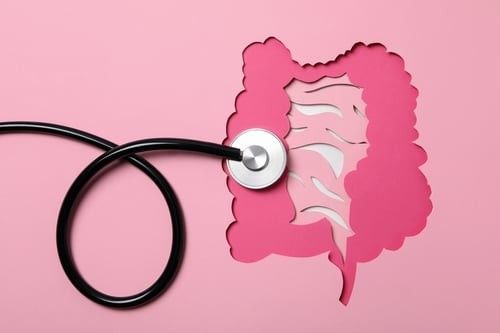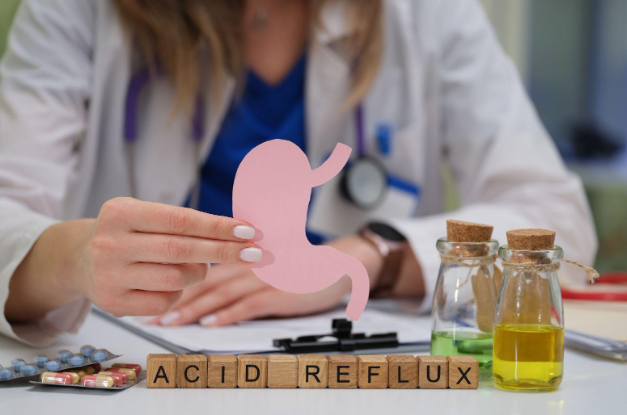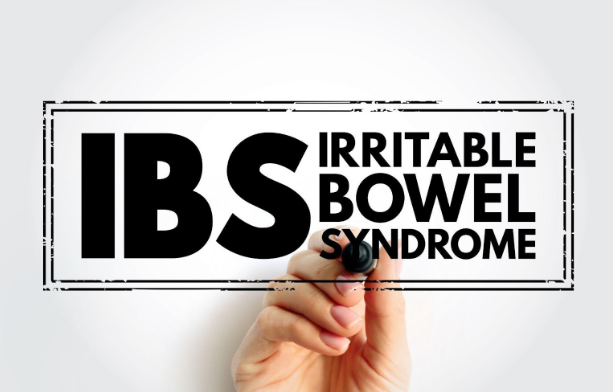A Comprehensive Guide to Barrett’s Esophagus: Causes, Symptoms, Diagnosis, Treatment, and Prevention

Barrett's esophagus is a condition in which the tissue lining of the esophagus (the tract present in the throat that transports food into the stomach) undergoes several changes. Cells lining the esophagus have been known to transform into intestinal-like cells for reasons that aren't fully understood. It is a precancerous condition that can lead to esophageal cancer. According to multiple pieces of research, acid reflux, also known as gastroesophageal reflux disease (GERD), has been linked to the development of Barrett's esophagus.
Here is a thorough guide on Barrett's esophagus that covers all aspects of the condition, from causes and symptoms to treatment and prevention.
Causes and Risk Factors Associated with Barrett’s Esophagus
The precise reason why some people get Barrett's esophagus is unknown. Even though GERD has been present for a long time in many patients with Barrett's esophagus, many of these patients exhibit no signs of reflux, a condition called silent reflux.
Regardless of whether acid reflux gets followed by GERD symptoms, stomach acid and substances can flow back down the esophagus, causing damage to the tissue of the esophagus and prompting alteration to its lining, which is what causes Barrett's esophagus.
While these are not the causes behind Barrett’s esophagus, the following factors increase your odds of developing the condition:
Age
Barrett's esophagus could develop at any age. However, it is significantly more prevalent in people over 50.
Being Male
Men are considerably more prone to get Barrett's esophagus.
Constant Discomfort from Heartburn and Acid Reflux
Having GERD that does not improve after using medications (such as proton pump inhibitors) or experiencing GERD that involves regular medication can increase the chance of Barrett's esophagus.
Family History
If someone in your family has had esophageal cancer or Barrett's esophagus, you have a greater chance of developing this condition yourself.
Weight Gain
The presence of body fat around the abdominal region raises your risk even higher.
Regular consumption of tobacco products, either currently or in the past, also increases the likelihood of developing Barrett’s esophagus.
Common Symptoms of Barrett’s Esophagus
Barrett's esophagus doesn't cause any prominent symptoms. However, you can be on the lookout for symptoms of ailments related to it, such as acid regurgitation and heartburn. The most concerning symptom would be heartburn which happens at least twice a week. Signs of heartburn include a burning sensation near the chest region and the feeling of particles in the back of one's throat (acid regurgitation).
Additionally, keep an eye out for the following symptoms:
- Burning sensations near the heart and chest region that get worse during the night or wake you up
- Swallowing may be painful or uncomfortable
- Blood in your stool
- Having the feeling that food is trapped in your esophagus
- Vomiting
- Chronic discomfort in the throat, a foul taste in the mouth, or an unpleasant breath
- Unplanned and sudden weight loss
Diagnosis of Barrett’s Esophagus
Typically, the presence of Barrett's esophagus gets diagnosed through endoscopy. Endoscopy involves looking for changes in the esophagus tissue with the help of a lighted tube called an endoscope that is inserted down a patient's throat.
A healthy esophagus's tissue will appear pale and exhibit a glossy appearance. On the other hand, the affected tissue in those who have Barrett's esophagus has a ruddy color and a velvety consistency. Even while the appearance of the esophagus can point to the presence of Barrett's esophagus, the condition can only be diagnosed definitively by taking tiny samples of tissue through the endoscope, a procedure called a biopsy.
Treatment of Barrett's Esophagus
Your treatment will be primarily determined by whether or not you are exhibiting symptoms, the severity of the abnormal proliferation of cells in your esophagus, your general state of health, and if biopsies reveal dysplasia, which is the presence of abnormal tissues.
1. Without Dysplasia
If you do not have dysplasia, you will likely be advised of the following treatments:
Regular Endoscopy
Endoscopy is to be performed periodically to track the cells in your esophagus. Suppose your biopsies do not reveal any signs of dysplasia. In that case, you will most likely undergo a follow-up endoscopy in twelve months and afterward every 3-5 years (if no abnormalities get detected).
GERD Treatment
Your signs and symptoms may improve with the help of medication and adjustments to your lifestyle. Possible treatment options include surgery or endoscopic techniques to rectify a hiatal hernia or to tighten the low esophageal sphincter, which is responsible for regulating stomach acid flow.
2. Low-Grade Dysplasia
It is recognized as the first phase of precancerous alterations when low-grade dysplasia is present. If low-grade dysplasia gets detected, it needs to be confirmed by a pathologist with plenty of relevant experience. Your doctor might recommend a second endoscopy within half a year, with repeat follow-ups at intervals ranging from six months to one year.
However, because of the risk of developing esophageal cancer, the doctor could recommend some treatments once the diagnosis is confirmed. Usually, the following types of treatments get recommended:
Cryotherapy
Cryotherapy is a treatment that involves applying a cold gas or liquid to aberrant esophagus cells using an endoscope. After allowing the cells to warm up, they are placed back immediately to freeze. The repeated processes of freezing and thawing are detrimental to abnormal cells.
Endoscopic Resection
Endoscopic resection is a technique that makes use of an endoscope to extract damaged cells to assist in the diagnosis of dysplasia and cancer.
Radiofrequency Ablation
Radiofrequency ablation is the opposite of cryotherapy—instead of using the cold, radiofrequency ablation utilizes heat to eliminate aberrant tissue from the esophagus. After endoscopic resection, a patient may receive the doctor's recommendation to undergo radiofrequency ablation.
You will need to undergo a second endoscopy after you have had medication to lower stomach acid for 3-4 months if a considerable amount of inflammation of the esophagus gets discovered during the initial endoscopy.
3. High-Grade Dysplasia
It is largely agreed upon that high-grade dysplasia is a risk factor for developing esophageal cancer. Due to it, your physician might suggest cryotherapy, endoscopic resection, or radiofrequency ablation as a course of treatment.
There is also the possibility of undergoing surgery, which would include severing the segment of your esophagus that has been damaged and reattaching the remaining healthy tissue segment to your stomach.
Barrett's esophagus can return even after treatment has been completed. Consult your doctor about how frequently you must return for more tests to determine your progress. If you opt for a treatment other than surgery to eliminate problematic tissue from your esophagus, your physician will most likely advise you to take medicine for the rest of your life to lessen the effects of acid on your esophagus and facilitate its recovery.
How Can You Prevent Barrett’s Esophagus?
Prevention is achievable to reduce your risk of developing Barett's esophagus by making several adjustments to your lifestyle. Switching to a healthy lifestyle that prevents acid reflux and other elements that irritate the lining of the esophagus is your ultimate solution to keeping this condition at bay. Here are a few helpful ways to do so:
1. Keep a Tab on Your Smoking and Drinking Habits
Smoking cigarettes or tobacco can irritate your esophageal lining, and you end up consuming carcinogenic substances that can not only lead to Barett's esophagus but might end up causing esophageal cancer. Similarly, a higher risk is associated with the consumption of any alcoholic beverage, be it wine, beer, or whiskey, so be wary of alcoholic drinks if you are at risk.
2. Avoid Acid Reflux
The same lifestyle measures that aid you in keeping acid reflux under control could also keep Barrett's esophagus at bay and lower your risk of developing further complications. If you suffer from acid reflux or show early signs of Barrett's esophagus, it is vital to keep the following things in mind:
- Instead of consuming three substantial meals each day, shift to eating several smaller ones more frequently
- avoid taking blood-thinning medicines such as aspirin
- stop consuming foodstuff late-night
- avoid lying flat on your back while sleeping (supine position)
3. Keep Your Weight in Check
As previously discussed, an increase in weight could lead to excessive body fat accumulation near the abdomen, which is among the most significant factors for acid reflux and Barrett’s esophagus. Therefore, this should be avoided at all costs. Keep to regular physical exercise and healthy eating habits as necessary.
Other lifestyle characteristics to improve upon include taking care of your dental health, consuming fresh fruits & vegetables every day, minimizing drinking hotter liquids, and avoiding red meat.
Staying in constant touch with a doctor if you experience any of the symptoms associated with GERD is the best practice for preventing Barrett's esophagus or keeping it under control. The doctor can guide you on what course of treatment is ideal for you.
If you are on the lookout for professional help, head over to
Northlake Gastroenterology. The experts address all your concerns and set you on the path to a vibrant, healthy life.
Contact us for more information.
More Blogs












